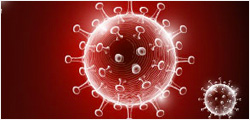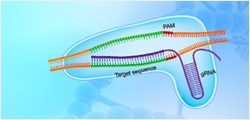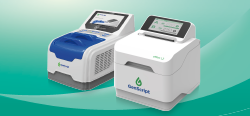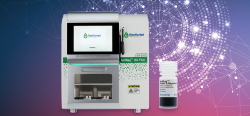| Specificity |
The product is specific for human CD4. |
| Host Species |
Mouse |
| Immunogen |
Recombinant human CD4 |
| Species Reactivity |
Human |
| Conjugate |
Unconjugated |
|
Working concentrations for specific applications should be determined by the investigators. The suitability of this antibody for applications other than those listed below has not been determined. For flow cytometric staining, the following concentration range is recommended starting points for this product and is suggested that the reagent be titrated for optimal performance for each application. |
| Application |
Recommended Usage |
| Flow Cytometry |
≤ 0.5 μg per million cells in 100 μl volume. It is strongly recommended that the reagent should be titrated for optimal performance for each application. |
|
| Form |
Liquid |
| Storage Buffer |
Supplied in 20 mM Sodium Citrate, 150 mM NaCl, pH 6.5. |
| Concentration |
1 mg/ml |
| Storage Instructions |
The product remains stable up to 12 months at 4 °C from date of receipt. For longer time storage, store at -80 °C. Avoid repeated freeze-thaw cycles. |
| Purification |
Protein A affinity column |
| Isotype |
Mouse IgG1κ |
| Clonality |
Monoclonal |
| Note |
GenScript can customize this product per customer's request including conjugations, product size, buffer components, etc. |

Flow cytometric analysis of CD4 expression on human peripheral blood lymphocytes. Human PBMC stained with Anti-Human CD4 Antibody (F001), mAb, Mouse (GenScript, Cat. No. A02211. Red) or with mouse IgG1 isotype control (Gray), followed by goat anti-mouse IgG PE-conjugated antibody. Data shown was gated on CD3 (+)/SSCLow T lymphocytes.
| Target Background |
CD4 (cluster of differentiation 4) is a single glycoprotein with a molecular weight of 59 kDa. CD4 antigen is expressed on the surface of T helper cells, monocytes and macrophages. CD4 recognizes antigens associated with MHC class II molecules, and participates in cell-cell interactions, thymic differentiation, and signal transduction. CD4 acts as a primary receptor for HIV, binding to HIV gp120. CD4+ T helper cells bind and activate B cells to create immunoglobulins. |
| Synonyms |
CD4; T-cell surface glycoprotein CD4 |
For laboratory research use only. Direct human use, including taking orally and injection and clinical use are forbidden.





































